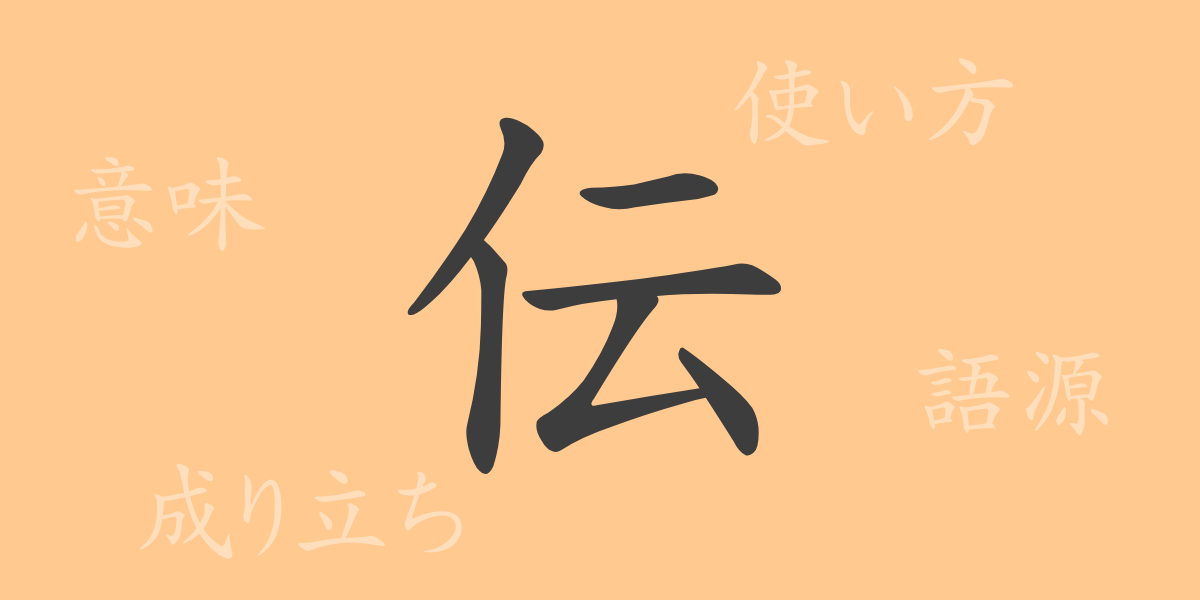Japanese characters, or kanji, weave deep meanings and histories into the fabric of the language. ‘伝(デン)’ is one such kanji, integral to everyday life and embodying concepts closely tied to our daily experiences. This article delves into the unique allure of ‘伝’, exploring its origins, meanings, applications, and the phrases and proverbs associated with it.
Origins of ‘伝(デン)’
The kanji ‘伝’ originated in ancient China, initially formed from the combination of ‘亻(ニンベン)’ (indicating a person) and ‘云(ウン)’ (to speak), conveying the act of one person passing words to another. Over time, it evolved to embody the meanings of ‘to convey’ and ‘to be conveyed’, symbolizing the spread of information and culture among people.
Meaning and Usage of ‘伝(デン)’
‘伝’ is used to signify ‘to convey’, ‘to be conveyed’, and ‘to inherit’, among others. It is also employed to illustrate the transfer of information from one person to another. This kanji symbolizes the importance of communication and cultural inheritance, making it a prevalent figure in various contexts.
Readings, Stroke Count, and Radical of ‘伝(デン)’
The kanji ‘伝’ offers various readings and essential structural information:
- Readings: On’yomi ‘デン’, Kun’yomi ‘つた.わる’, ‘つた.える’, ‘つた.う’, ‘つだ.う’
- Stroke Count: ‘伝’ consists of 9 strokes.
- Radical: The radical of ‘伝’ is ‘亻(にんべん)’, which signifies a person.
Phrases, Idioms, and Proverbs Using ‘伝(デン)’
‘伝’ features in numerous idioms, phrases, and proverbs, each with unique meanings and usages:
- 伝言(でんごん): Passing on a message on behalf of someone else.
- 伝統(でんとう): Traditions and cultures that have been passed down through generations.
- 伝説(でんせつ): Legends or tales passed down over time, whose truth may be uncertain.
- 手を伝う(てをつたう): A situation progressing in an orderly manner.
- 口伝(くでん): Oral transmission, a method of conveying messages without written documentation.
Conclusion on ‘伝(デン)’
The kanji ‘伝’ plays a crucial role in our communication and the perpetuation of culture. Understanding its evolution from its formation to its modern applications allows us to appreciate the connections and cultural significance mediated through language. The phrases and proverbs using ‘伝’ narrate the richness of the Japanese language, ensuring its continued relevance in our expressions.

























